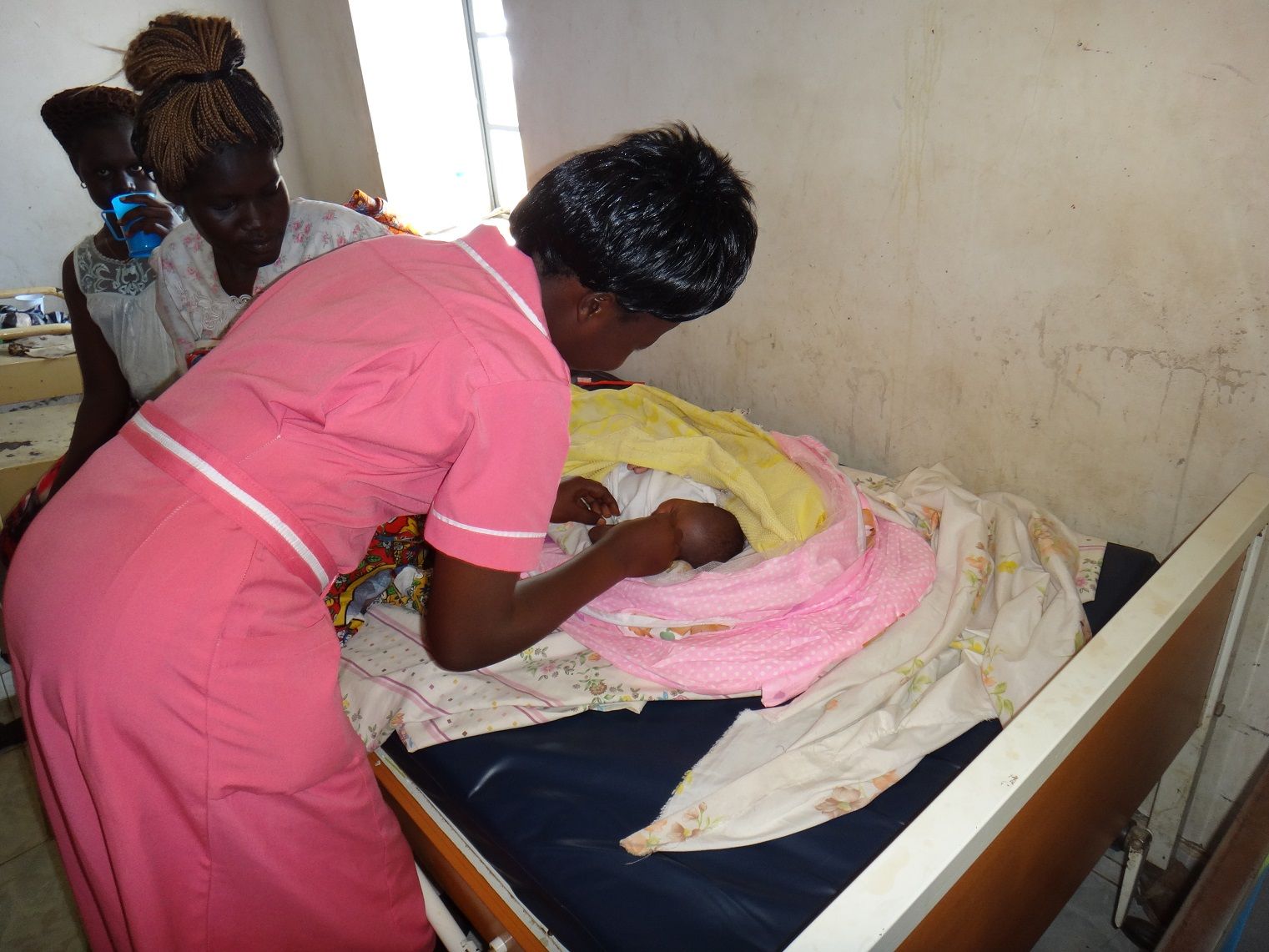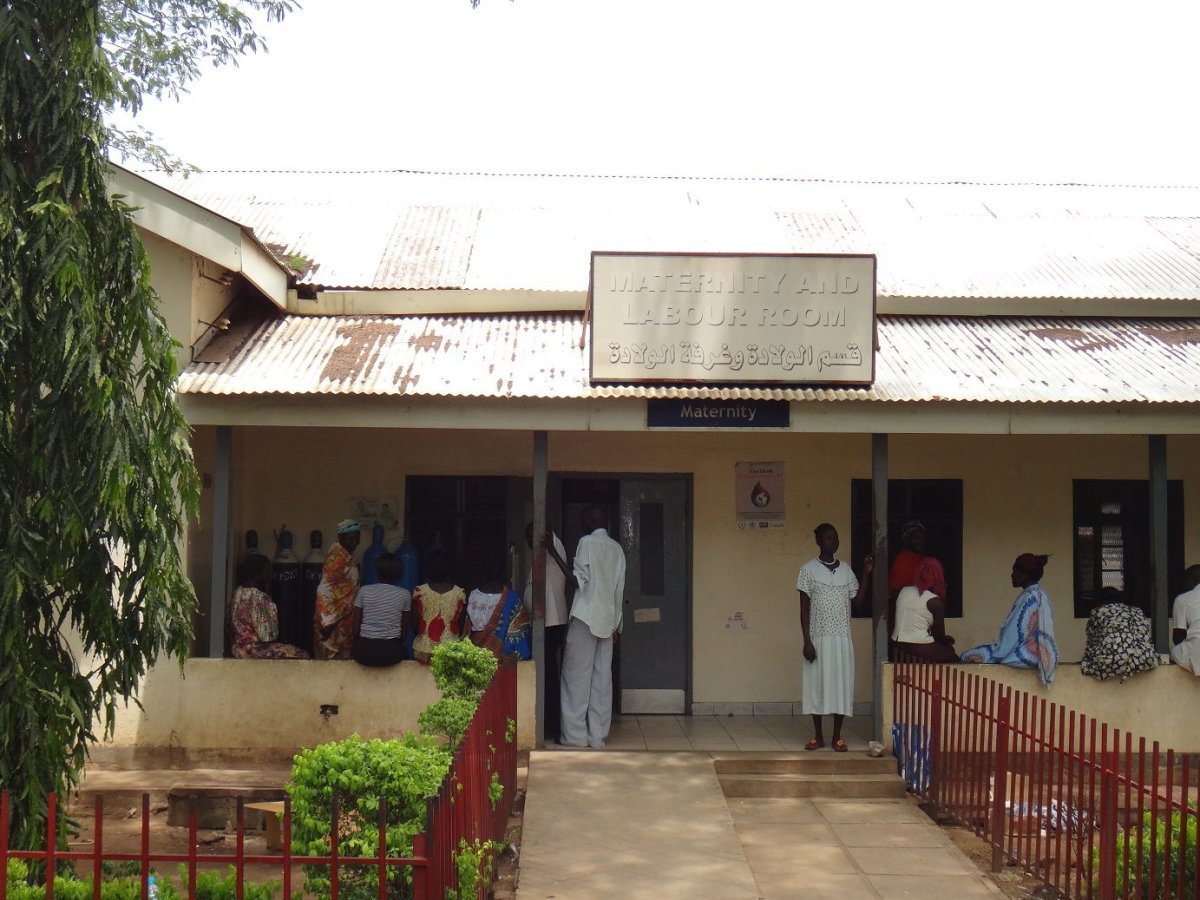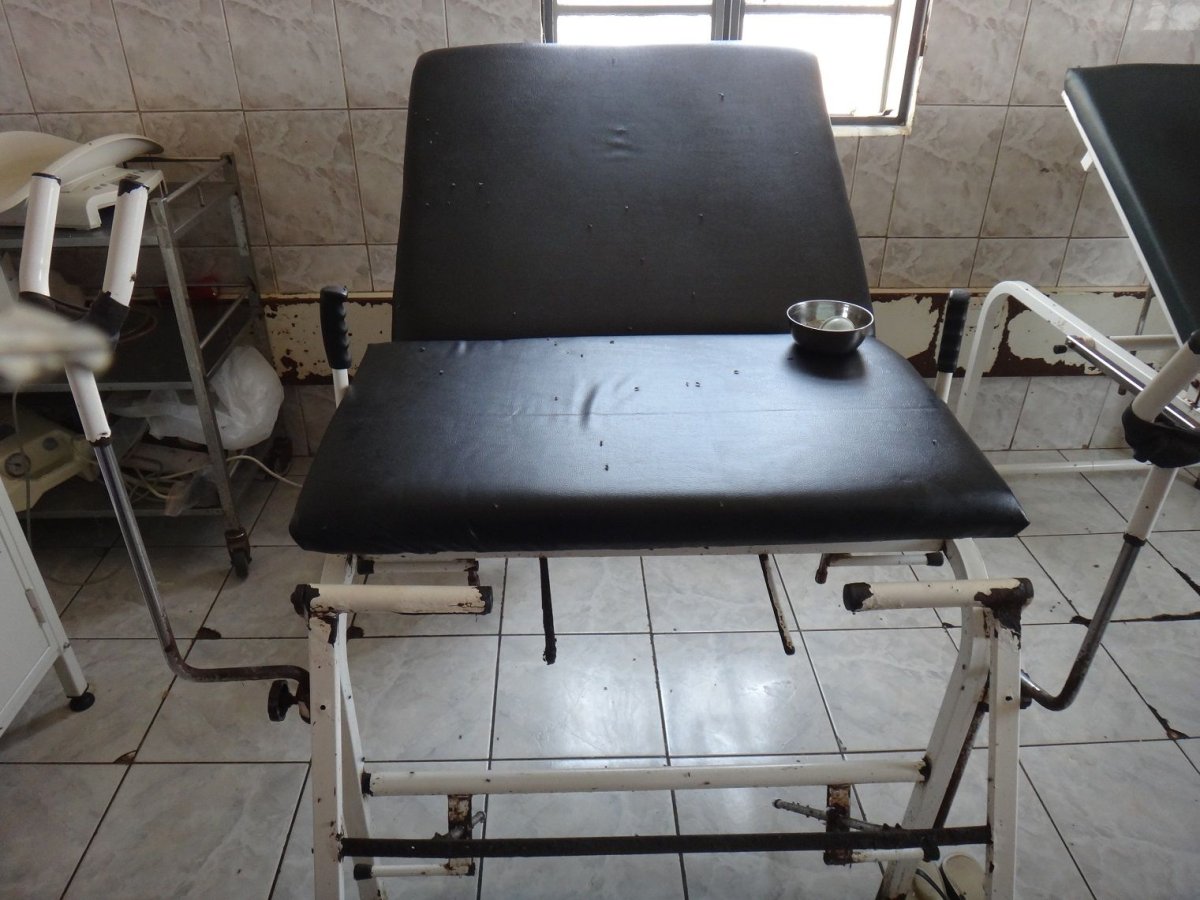
There is no shortage of problems in South Sudan, the world's youngest country, which has been blighted by civil war and food shortages in its short but turbulent five-year history.
But one issue that can remain invisible to anyone outside the walls of South Sudan's hospitals is the extreme danger women put themselves in simply by giving birth. According to the latest World Bank data, 789 South Sudanese mothers die for every 100,000 live births—this is the world's fifth-highest maternal mortality rate, behind only four fellow sub-Saharan African countries.
Other estimates are higher: a 2012 report by Geneva-based think-tank Small Arms Survey found that a 2006 national survey that estimated 2,054 deaths per 100,000 live births—which would make South Sudan the world's deadliest place to give birth—may have been an underestimation, since the majority of women gave birth away from formal medical facilities.
Veronica Ades, an obstetrician and gynaecologist, knows the problems entailed by giving birth in South Sudan. Ades has spent two stints working for medical charity Médecins Sans Frontières (MSF) in Aweil, in the north of the country—for four weeks in 2012 and for five weeks between February and March 2016. Ades says that while the reasons for pregnant women dying in South Sudan are the same as in other parts of the world—haemorrhage, infection and other complications upon delivery, for example—these are magnified by a lack of medical infrastructure, trained personnel and even basic transport links for getting around a country that the United Nations said has no paved roads outside the capital, Juba. "Women do not have access to care," says Ades, 38, who now works in New York. "The women that we would see would sometimes travel hundreds of miles to reach us."
Ades recounts a particularly distressing occasion, where a mother went into labor with the fetus in a transverse position—i.e. lying sideways, making delivery impossible—meaning that the fetus' arm protruded out of her vagina. The woman sought assistance in a peripheral health center near to her home, but medics there were unable to help due to the lack of capable midwives and clinicians. Fourteen hours later, once she had finally managed to reach the MSF facility in Aweil, Ades performed a Caesarean section to remove the now deceased fetus from the exhausted mother.

One of the biggest obstacles to improving maternal mortality rates in South Sudan is the lack of trained personnel: there is one physician per 66,000 population and just a single midwife per 39,000 population. (By way of contrast, there were just over 22,000 trained midwives in the NHS in England in May 2015, which equates to one midwife per 2,400 population.) At the country's only referral hospital, Juba Teaching Hospital (JTH)—which is run by the government and supported by the Real Medicine Foundation (RMF)—15 midwives serve the busy maternity ward, where there are up to 20 natural deliveries per day and five Caesarean sections, but just 13 beds. Less than half of the midwives are professionally trained, however, meaning that care can often be sub-standard.
A Ugandan midwife at JTH—who prefers to remain anonymous for security reasons—says the reliance on poorly-trained colleagues contributes to low morale in the workforce. "There is a lack of team spirit at work because of the different levels of background training and cultural elements," she says via email. The midwife says she has previously prepared women to undergo Caesarean sections only to find that the sole doctor or anaesthetist has gone away and no one else is available. "I know the mother is in danger and could rupture her uterus at any moment, but I can't help any more so I get frustrated and defeated. At times, the mother ends up dying when a midwife is seeing them but I can't help," she says.

Coupled with a personnel shortage, a lack of basic resources—including electricity and running water—makes the jobs of health professionals even more difficult. Dr Taban Vitale, 32, is a GP and RMF team leader at JTH. Vitale tells Newsweek from Juba that the hospital has been without power for several days, meaning that expectant mothers are forced to give birth during the night by torchlight. The lack of power also means that the blood banks are empty—donated blood needs to be refrigerated in order to remain usable—and that anaemic mothers in need of a transfusion are at risk of death unless there is a compatible donor immediately to hand.
"You have to look up people to come and donate at that very moment, which is a challenge. So we are losing mothers because of that," says Vitale, who comes from South Sudan's former Eastern Equatoria state (the states were reorganized by President Salva Kiir in 2015). Vitale's complaints are testified to by the Ugandan midwife working at JTH, who says she has previously donated blood to a dying mother due to the lack of supply.
Decades of instability in South Sudan—which gained independence from Sudan in 2011 after years of conflict—means that much of the country's functioning medical infrastructure has been reduced to rubble. A 2015 report by Human Rights Watch recorded almost 50 attacks on health services—including the looting of hospitals and killings of patients and health workers—between 1997 and 2014 alone. The outbreak of civil war in December 2013 between soldiers loyal to President Kiir and those aligned with recently re-appointed Vice President Riek Machar has also devastated the country's fragile health system. Around 50 percent of the country's medical facilities have been destroyed, according to estimates by the South Sudanese ministry of health reported by Al Jazeera, and fighting continues in pockets despite a peace agreement signed in August 2015.
For Vitale, though, there are signs of hope. RMF runs the Juba College of Nursing and Midwifery, the country's first accredited nursing college that trains midwives to diploma level. Vitale has found that many of the midwives have been traumatized due to their experiences during the country's years of conflict, leaving workers ambivalent and often seemingly without care for patient welfare. "We want to change the attitude of the healthcare workers to have respect, to treat people with care, with respect, with dignity," says Vitale. "If we can do that... the mothers will come, they will be cared for, they will be happy, and they will go back to their homes and tell their neighbors to come and deliver from JTH."
Ades agrees that she saw big improvements in the standards of training between her two trips in 2012 and 2016. As well as basic infrastructural improvements, however, Ades says there must be a cultural shift towards providing better resources for women, particularly expectant mothers. More than four-fifths of births in South Sudan are medically unattended—i.e. delivered without professional assistance—and 84 percent of South Sudanese women are illiterate, according to Women for Women. Rape and sexual violence against women has been rampant during the recent civil war, with the U.N. finding in a March report that militias allied to the government were being allowed to rape women in lieu of being paid.
"Sometimes there is an undervaluing of women and sometimes the resources aren't going to saving women's lives, they're going to other things," says Ades. "The resources it takes to save women's lives in childbirth [are there]. We don't need a new medicine or a new technology. We know how to do it—it's [building] roads, money, infrastructure, safe delivery, C-sections, midwives."
Uncommon Knowledge
Newsweek is committed to challenging conventional wisdom and finding connections in the search for common ground.
Newsweek is committed to challenging conventional wisdom and finding connections in the search for common ground.
About the writer
Conor is a staff writer for Newsweek covering Africa, with a focus on Nigeria, security and conflict.
To read how Newsweek uses AI as a newsroom tool, Click here.








